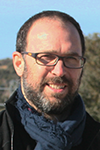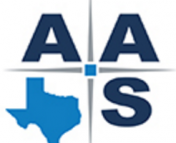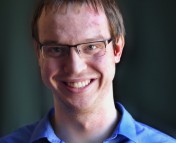 Light pollution is a concern for many astronomy enthusiasts and stargazers, but for Prof. Martin Aubé its effects are a lifelong investigation.
Light pollution is a concern for many astronomy enthusiasts and stargazers, but for Prof. Martin Aubé its effects are a lifelong investigation.
Aubé is a professor in the department of Physics at CÉGEP de Sherbrooke in Quebec. He will be giving a keynote talk at #AAS229 entitled “The LED Outdoor Lighting Revolution: Opportunities, Threats and Mitigation.”
Like many astronomers, Aubé’s love of the cosmos began early in life when a geography teacher first told Aubé that Saturn’s rings were visible from Earth. Soon after, Aubé was able to confirm this observation for himself. As he recalls, “I first received, as a Christmas gift, a three inch telescope. I was amazed to be able to observe Saturn with such a small telescope.” Aubé was hooked, and turned his passion into a career. After earning a B.Sc. and M.Sc. in physics, Aubé pursued a Ph.D. in remote sensing and tracking of aerosols in the atmosphere.
After obtaining his Ph.D., Aubé returned to CÉGEP as a professor to continue his research in monitoring aerosols using artificial lights. He and his team built a high-sensitivity spectrometer coupled with a sophisticated numerical model to monitor and model light pollution. Simultaneously, Quebec began the first international dark sky reservation around the Mont-Mégantic (IDSRMM) observatory. After the inauguration of IDSRMM, Aubé’s work in light pollution research started to get international recognition when he began to monitor light pollution around the world. In his own words, “I think that after all I have been very lucky to begin my research in [light pollution] while it was still poorly developed.”
During his talk, Aubé will focus on a more recent research question: what is the impact of the spectral form of artificial light on our health? A few years ago, Aubé discovered that the blue LEDs being used in streetlights were potentially hazardous for human health. Aubé will discuss these findings at his keynote talk on Jan. 5th at 8:30am, so don’t miss it!



Thanks for highlighting this talk and research.